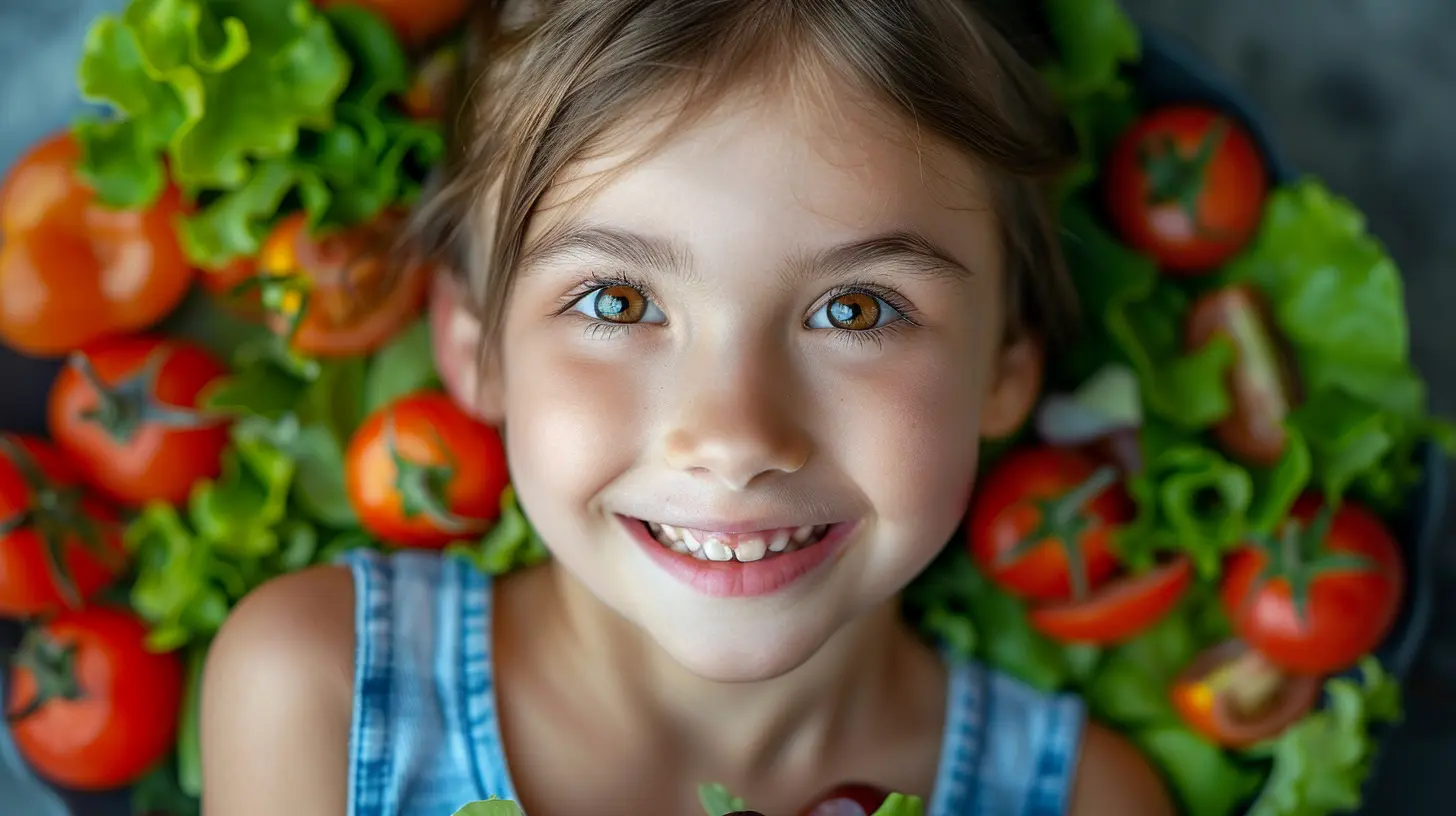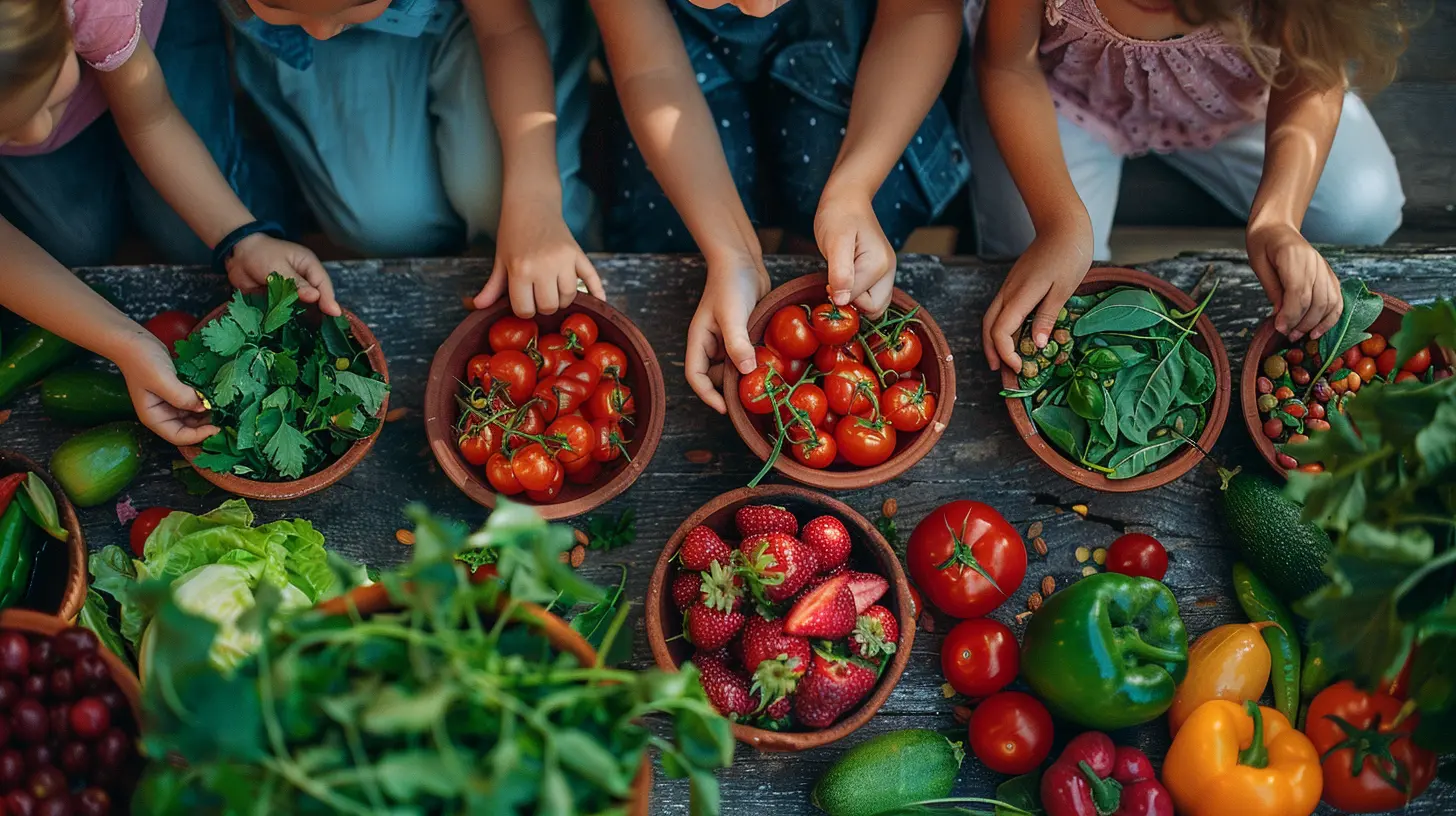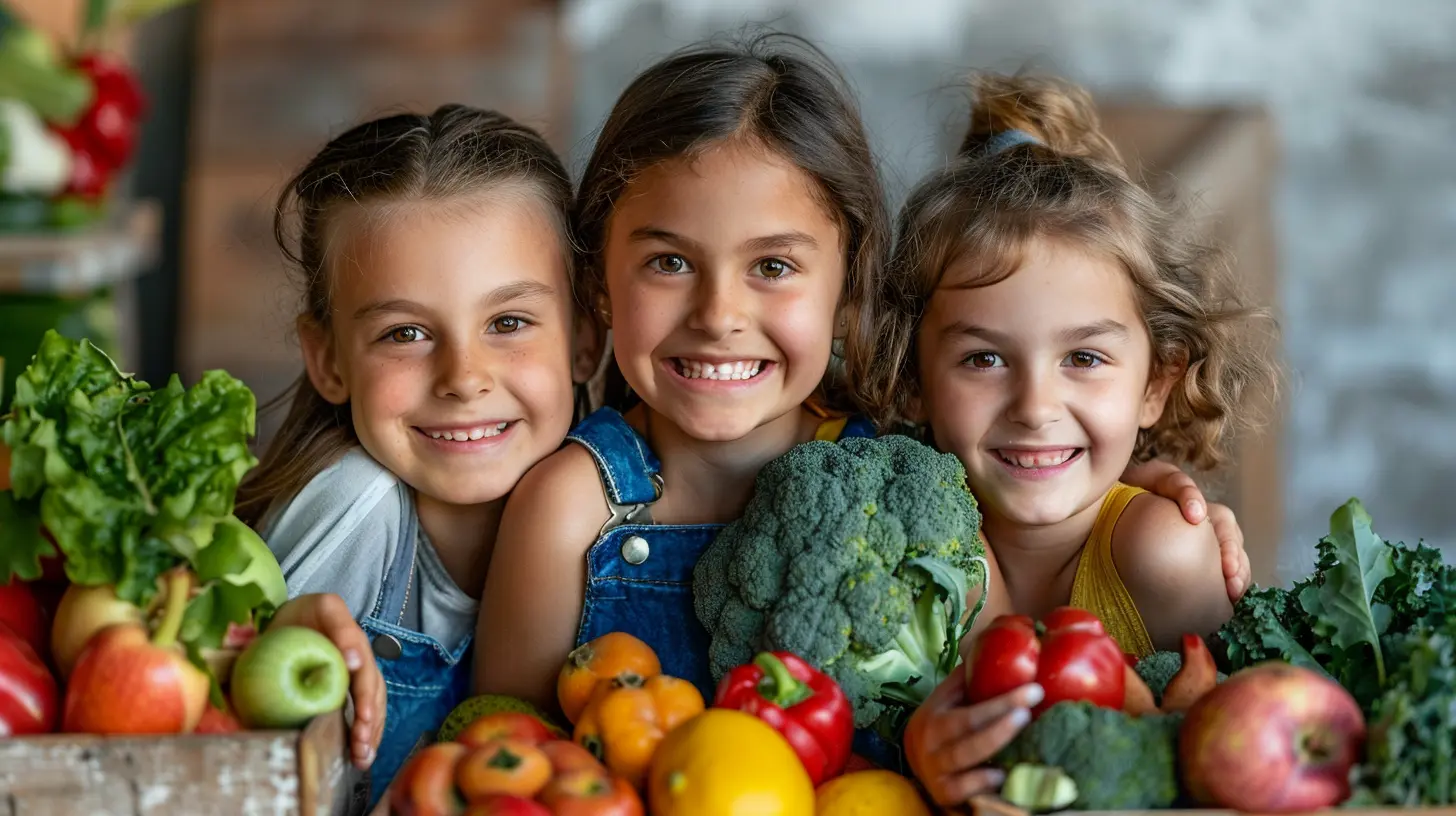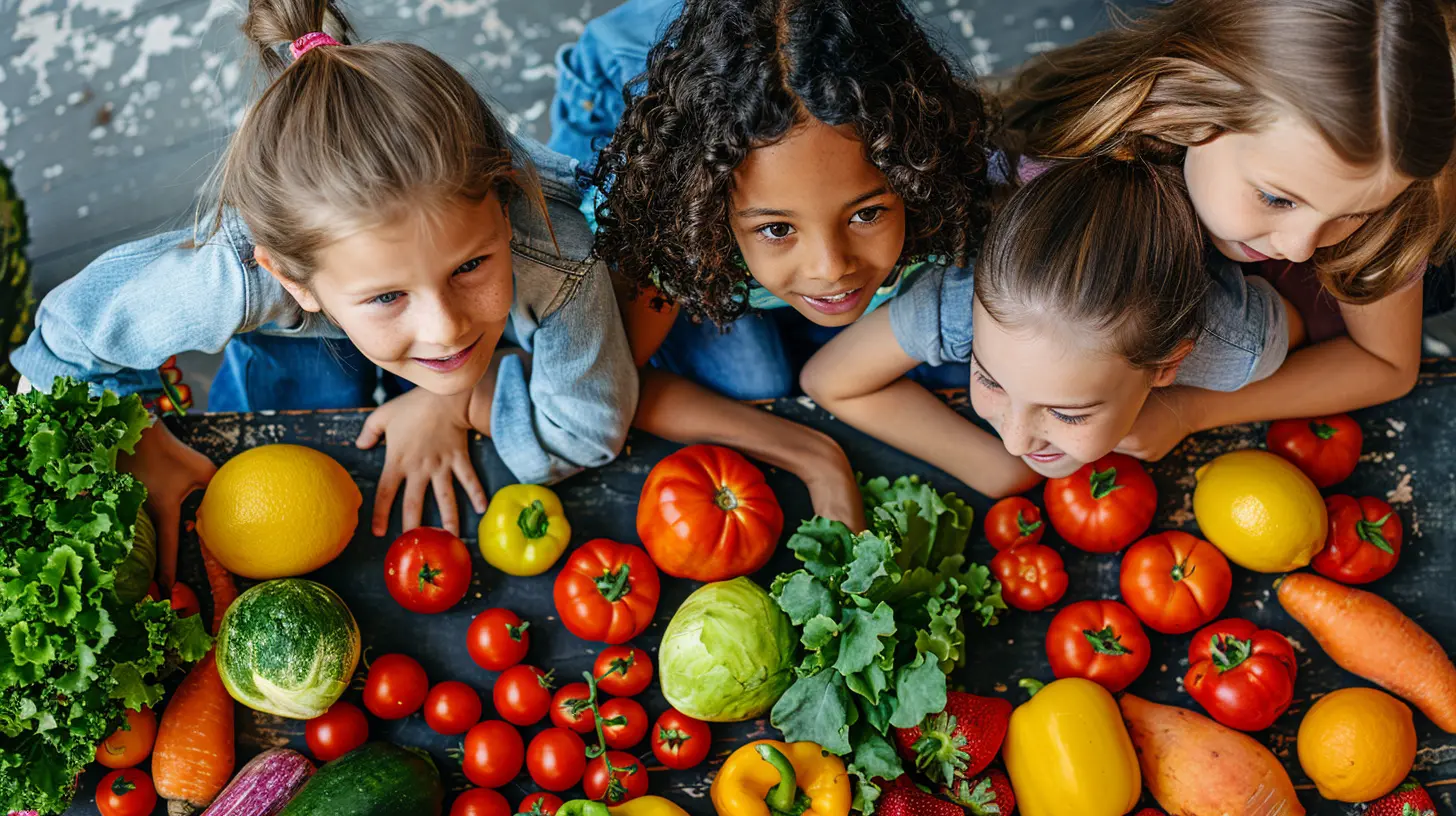The Connection Between Gut Health and Mental Health in Children
6 August 2025
Have you ever had a “gut feeling” about something? That flutter in your stomach when something feels off? We often write these sensations off as nerves or instinct—but what if I told you that your gut might actually be talking to your brain? And what if that connection plays a huge role, not just for us adults, but for our little ones too?
Welcome to the fascinating world where tummies and thoughts are more connected than we ever imagined. If you're a parent, caregiver, or just someone who loves a curious deep dive, you're about to be blown away by how gut health can shape our children's mental well-being.
What Is the Gut-Brain Connection, Anyway?
Let’s start with the basics. Our gut isn't just a food-processing machine. It's actually a complex and intelligent system with its own nervous system—the enteric nervous system. Some even call it our “second brain.” Yep, you read that right!This brain-in-your-belly communicates constantly with the real-deal brain in your head through what's called the gut-brain axis. Think of it like a direct phone line between your child’s stomach and their mind—vibrant, electric signals going back and forth every single second.
And here’s where things get even more wild: around 90% of the body’s serotonin—one of the key “happy hormones”—is actually made in the gut. Not the brain. So, if your kiddo’s tummy isn’t in top shape, their mood might not be, either.
Why Gut Health in Kids Should Be a Big Deal
Children are growing not just physically, but mentally and emotionally. Their brains are like sponges, soaking up the world around them. But what many of us don’t realize is that their gut is also soaking up—and processing—an enormous amount of information and nutrients that feed their body and brain development.When the gut is healthy, it’s like a well-tuned orchestra, playing a beautiful harmony that helps with:
- Balanced mood and emotions
- Proper digestion and nutrient absorption
- Boosted immune function
- Better sleep patterns
- Improved focus and behavior
Flip the coin, though, and an out-of-whack gut can lead to:
- Anxiety or mood swings
- Tummy troubles like bloating, constipation, or diarrhea
- Food sensitivities
- Poor sleep
- Behavioral challenges
It’s like trying to run a complex operating system on a glitchy server. If the gut's struggling, the whole system hits a snag.
Microbiome: Meet Your Child's Inner Ecosystem
So, what’s really going on inside that tiny tummy?Inside your child’s gut lies a bustling metropolis of bacteria—trillions of them! This community is known as the microbiome. It’s a mix of good and bad bacteria, and when the good guys outnumber the bad, all systems tend to run smoothly.
Think of the microbiome like your kid's internal garden. When it's nurtured with care—fed with the right foods, loved with healthy habits—it blooms. But if left unattended, invasive weeds (a.k.a. harmful bacteria) can take over, creating chaos.
This garden directly impacts the gut-brain axis. A blooming microbiome sends calming, feel-good vibes to the brain, while an imbalanced one might toss stress and confusion into the mix.
How the Gut Communicates With the Brain
Here comes the magical part: how the gut actually talks to the brain! There are three main ways:1. The Vagus Nerve
Think of the vagus nerve as the superhighway between gut and brain. This nerve sends signals both ways—like a two-way radio. When the gut microbiome is balanced, it delivers peaceful, “all is well” messages to the brain. But when things are inflamed or imbalanced? That’s when anxious thoughts and emotional instability can sneak in.2. Neurotransmitters
As mentioned earlier, serotonin isn’t just made in the brain. The gut produces a significant amount of it. Other neurotransmitters like dopamine (motivation) and GABA (calming) also get their start in the gut. When your child’s gut is off, these feel-good chemicals can drop, affecting their mental health.3. Immune System Responses
A large chunk of the immune system lives in the gut. If the gut is inflamed or under attack (from antibiotics, poor diet, stress, you name it), it can trigger immune responses that affect brain function. This can lead to what some experts call “inflammatory brain fog”—trouble concentrating, mood changes, even depression.Signs Your Child Might Have Gut Imbalance
So how do you know if your child’s gut and brain aren’t playing nice?Here are a few red flags:
- Frequent stomachaches, gas, or bloating
- Irregular bowel movements
- Skin issues like eczema or rashes
- Fussiness after meals
- Sleep problems
- Anxiety, mood swings, or irritability
- Difficulty focusing or hyperactivity
Now, these symptoms alone don’t guarantee a gut issue, but they’re worth paying attention to—especially when they come in clusters.
The Role of Diet: It All Starts With the Plate
Okay, let’s get practical. How can we support our kids’ gut health to benefit their mental wellness?It begins at the dinner table.
A colorful, fiber-rich diet full of whole foods can do wonders. Here's a starter list of gut-loving foods to include in your little one’s daily diet:
● Probiotics
These are the good bacteria. You can find them in yogurt (opt for the no-sugar-added kind), kefir, miso, sauerkraut, and other fermented foods.● Prebiotics
Prebiotics are the food that feed probiotics. Think bananas, oats, garlic, onions, and apples.● Fiber
Fiber is essential for keeping things moving and feeding good bacteria. Load up on fruits, veggies, legumes, and whole grains.● Omega-3 Fatty Acids
Found in fish like salmon, chia seeds, and flaxseeds—omega-3s are brain-food gold and help reduce inflammation.● Stay Away From…
- Sugary drinks and snacks- Highly processed foods
- Artificial additives and preservatives
- Excessive antibiotics (only when truly needed!)
You’re not aiming for perfection—just a mindful shift toward nourishing choices most of the time.
Probiotics: Do Kids Need Supplements?
It’s a common question. The short answer? Sometimes.If your child has recently taken antibiotics, experienced digestive issues, or struggles with mood regulation, a high-quality probiotic supplement (made just for kids) might help balance their microbiome.
Of course, you should always talk to your pediatrician or a healthcare provider before adding any supplements to your child’s routine. Gut health is personal, and every kiddo is unique.
Stress and the Gut: A Two-Way Street
We can’t talk about mental health without mentioning stress. Even kids feel it—school pressure, social dynamics, or changes at home. When a child is stressed, their gut can become more sensitive, inflamed, and less efficient at digestion.But it works both ways: if the gut is out of whack, it can create stress in the brain. Like a merry-go-round that just won’t slow down.
Which is why tackling stress from both ends—brain and belly—is key.
Include gentle, calming practices into your child’s day:
- Outdoor play (nature boosts gut microbes!)
- Deep breathing exercises
- Creative activities like drawing or music
- Regular, tech-free family time
- Uninterrupted sleep routines
The Power of Play and Movement
Movement isn’t just good for strong bones and healthy hearts—it’s a gut-booster too.When kids are active, it stimulates their digestion, reduces inflammation, and supports a diverse microbiome. Plus, physical activity naturally boosts mood-regulating neurochemicals.
So let them run barefoot in the grass, dance in the rain, or build forts in the living room. Joyful movement is healing—for both gut and soul.
When to See a Professional
If you’ve tried all the right foods, routines, and probiotics but your child is still struggling—don’t hesitate to seek help. Pediatricians, child psychologists, and functional medicine practitioners can dig deeper with tests, support, and more personalized plans.Remember, you’re never alone on this journey. And your intuition as a parent? That “gut feeling”? Trust it.
Final Thoughts: Nurture the Gut, Nourish the Mind
Raising kids today is no small task. There’s so much noise, so many opinions. But here’s a gentle truth: you have the power to influence your child’s mental wellness by starting with something as simple—and profound—as their gut health.Tummies aren’t just about what goes in. They’re about what comes out, how our kids feel, process life, interact with others. When we care for the whole child—mind, heart, and belly—we give them the roots they need to grow strong, steady, and joyful.
So next time your little one seems out of sorts, take a peek at their plate, their routine, and yes—their poop schedule too. Sometimes, the secret to a happier mind is hidden in the belly.
all images in this post were generated using AI tools
Category:
Healthy EatingAuthor:

Tara Henson
Discussion
rate this article
1 comments
Sasha McTier
Such an eye-opening read! It's amazing how our kids' gut health can impact their moods. Thanks for sharing these important insights!
August 22, 2025 at 4:13 AM

Tara Henson
Thank you! I'm glad you found it insightful. It's fascinating how interconnected our gut health and moods can be!


